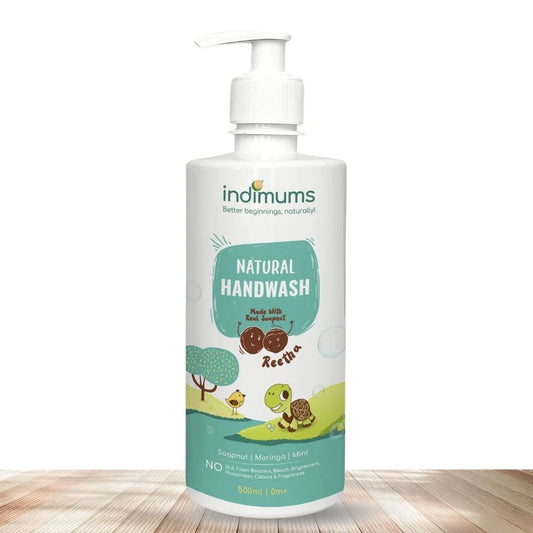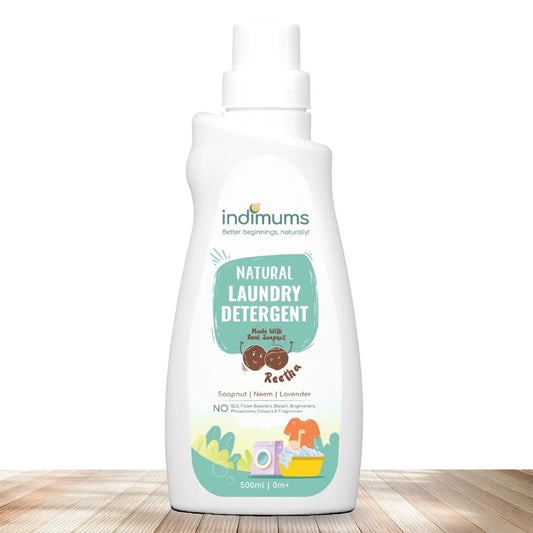Bringing a new baby into the world is a delightful moment, but when your little one is diagnosed with eczema, it can pose some unique challenges. Eczema is a common skin condition that is characterized by red, itchy rashes, and it requires special attention and care. In this blog, we will explore the dos and don'ts of taking care of a baby with eczema to help parents navigate this journey with confidence.
Potential Causes of Eczema in Babies:
- Genetics: Eczema often runs in families, suggesting a genetic predisposition to the condition. If one or both parents have eczema, asthma, or allergies, the likelihood of the baby developing eczema increases.
- Immune System Dysfunction: Babies with eczema may have an overactive immune system, leading to inflammation and irritation of the skin.
- Environmental Triggers: Exposure to certain environmental factors can exacerbate eczema symptoms in babies. These triggers may include harsh soaps, fragrances, wool clothing, dust mites, pollen, and pet dander.
-
Skin Barrier Dysfunction: In some cases, babies with eczema may have a compromised skin barrier, making it more susceptible to irritation and moisture loss.

Caring for a baby with eczema requires special attention and consideration to ensure their delicate skin remains comfortable and irritation-free. In this blog post, we'll discuss five crucial things to avoid if you have a baby with eczema, helping you create a supportive environment that minimizes flare-ups and promotes overall skin health.
Harsh Skincare & Homecare Products:
One of the key things to avoid is using harsh skincare products that may exacerbate eczema symptoms. Steer clear of products containing fragrances, dyes, and harsh chemicals that act as allergens. Opt instead for gentle, hypoallergenic options specifically formulated for sensitive skin. Look for soapnut-based products, as soapnuts are known for their natural and soothing properties.
Tight or Irritating Clothing:
Avoid dressing your baby in tight or irritating clothing. Tight garments can increase friction on the skin, potentially triggering eczema flare-ups. Opt for loose, breathable fabrics like cotton to provide comfort and minimize irritation. Keep an eye out for any clothing tags or seams that might rub against sensitive areas.
Extreme Temperatures:
Extremes in temperature can aggravate eczema-prone skin. Avoid exposing your baby to overly hot or cold environments. Maintain a comfortable room temperature and dress your baby appropriately for the weather. Use lightweight layers that can be easily adjusted to keep your baby's skin comfortable.
Long Baths with Hot Water:
While baths can be soothing, avoid long sessions with hot water, as this can strip the skin of its natural oils, leading to dryness and irritation. Opt for short, lukewarm baths instead. Choose mild, soap-free cleansers, and consider adding colloidal oatmeal or soapnut-infused bath products to provide additional relief.
Stressful Environments:
Stress can contribute to eczema flare-ups, even in babies. Try to create a calm and stress-free environment for your little one. Maintain a consistent routine, provide comforting activities, and ensure your baby gets enough sleep. A soothing atmosphere can positively impact your baby's overall well-being and help manage eczema symptoms.
Here are some common chemicals that may contribute to or exacerbate eczema in babies:
1. Fragrances: Fragrances in baby products such as lotions, shampoos, and laundry detergents can contain allergens and irritants that may trigger or worsen eczema.
2. Preservatives: Certain preservatives, such as parabens and formaldehyde-releasing agents, are commonly used in skincare and personal care products. These can be irritating for sensitive skin.
3. Dyes: Artificial colors and dyes in clothing, baby products, or even in foods can potentially contribute to eczema in some individuals.
4. Harsh detergents: The residue left on clothes and bedding from harsh laundry detergents may irritate the skin, leading to eczema flare-ups.
5. Certain metals: Nickel, found in some jewelry and clothing fasteners, can trigger allergic reactions and exacerbate eczema symptoms.
6. Topical medications: In some cases, the ingredients in certain topical medications or ointments may cause irritation or an allergic reaction.
Soapnut aka Reetha as a natural choice for hypoallergenic products:
Soapnut, also known as Reetha, is a natural choice for those looking for hypoallergenic products. These products are designed specifically to minimize the risk of allergic reactions and are ideal for babies with sensitive skin. Soapnut-based products offer a gentle and natural alternative that harnesses the cleansing properties of soapnuts without compromising on effectiveness. By incorporating these products into your baby's skincare routine, you can ensure a soothing experience that minimizes the risk of allergic reactions. Look for labels that explicitly mention "soapnut-based" or "derived from soapnuts" to guarantee a hypoallergenic and nurturing choice for your little one.




